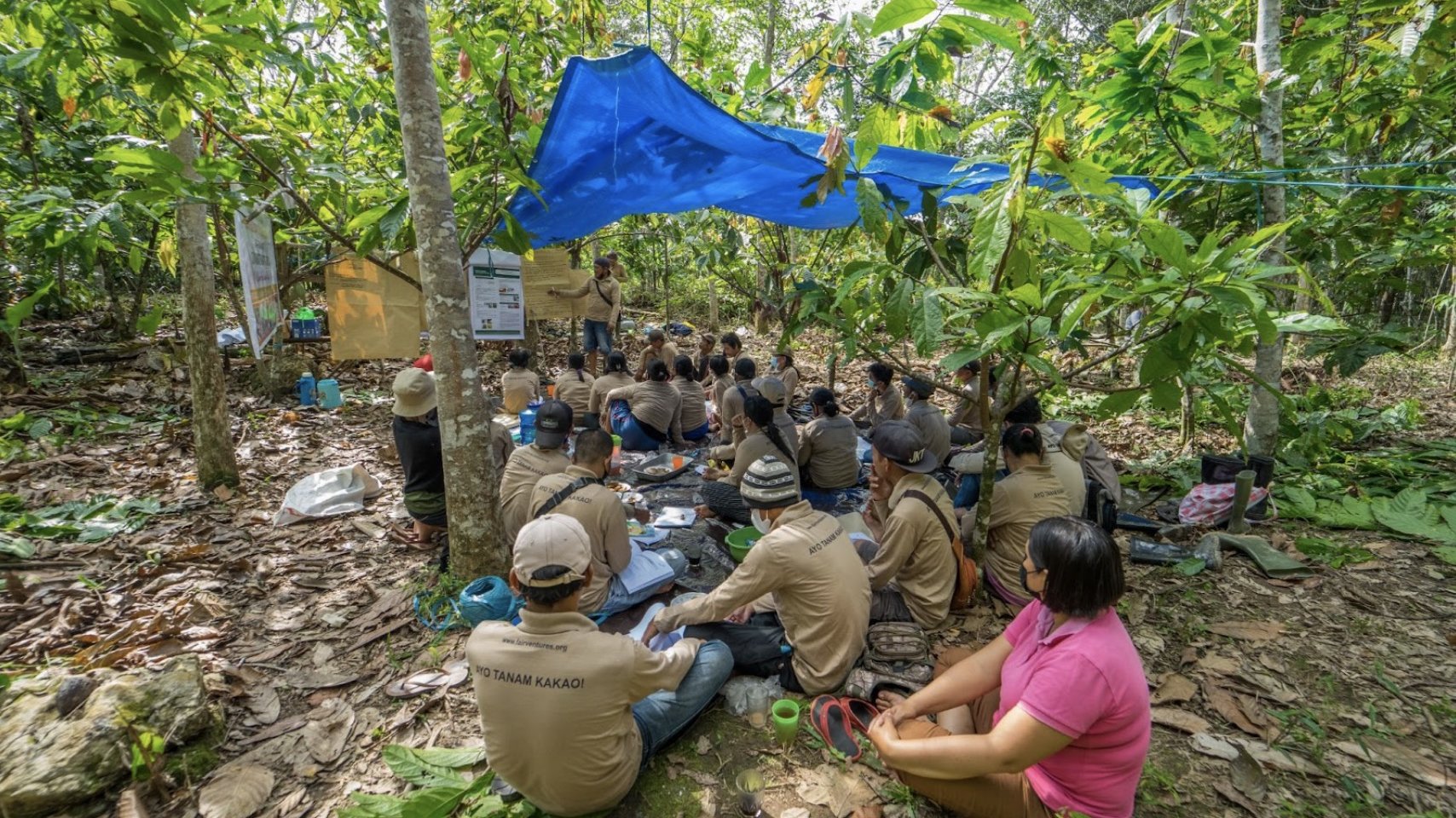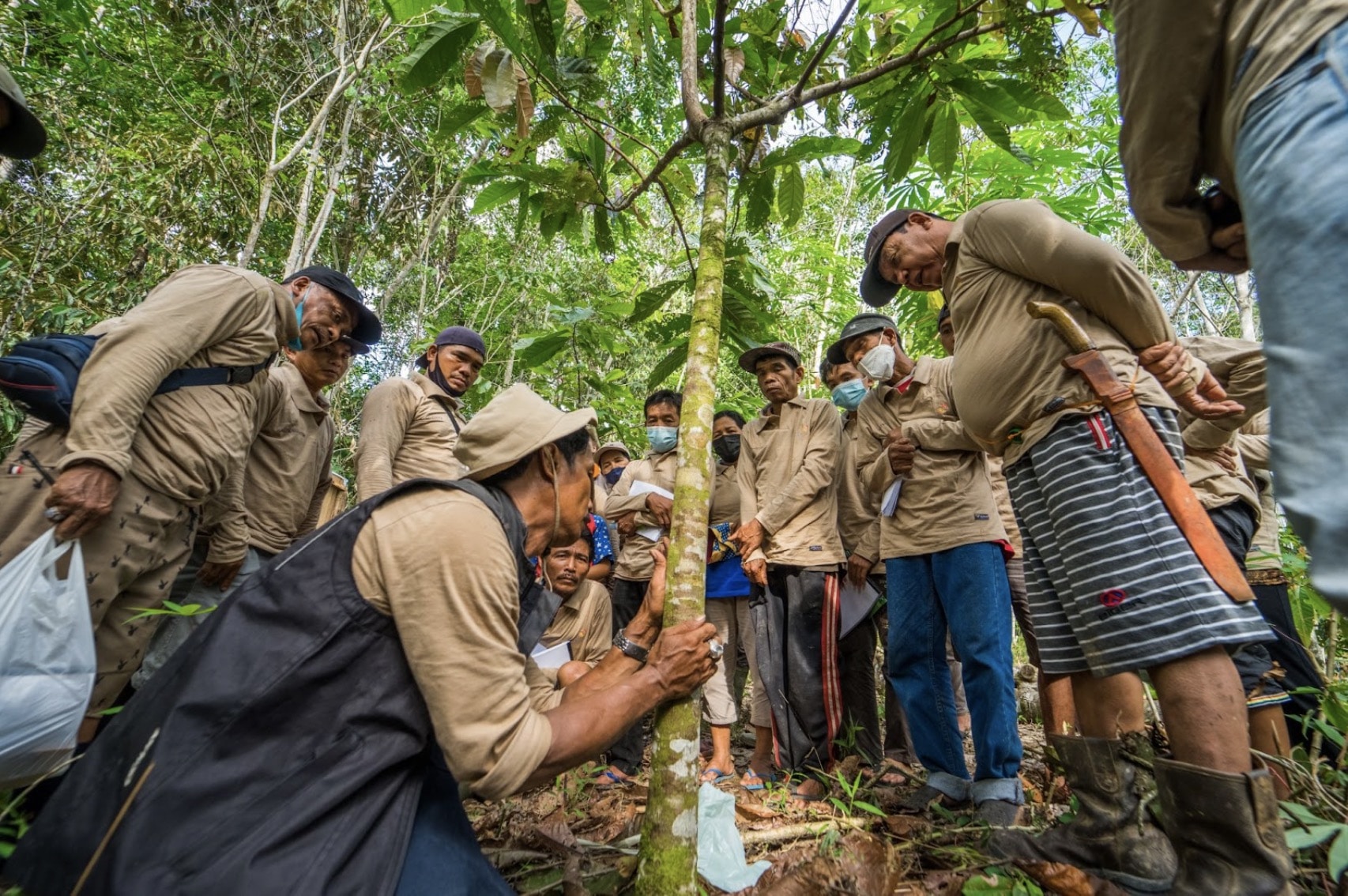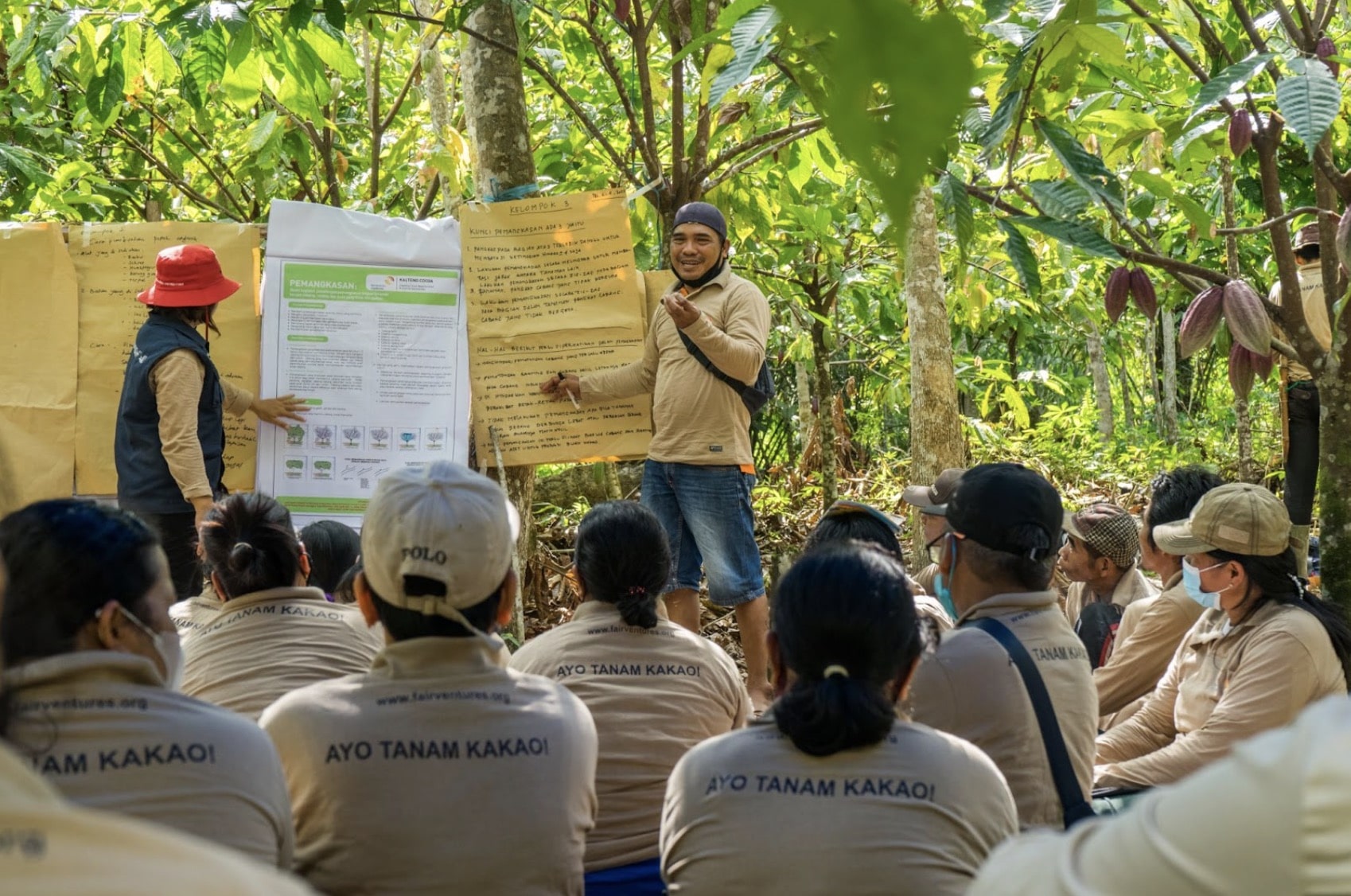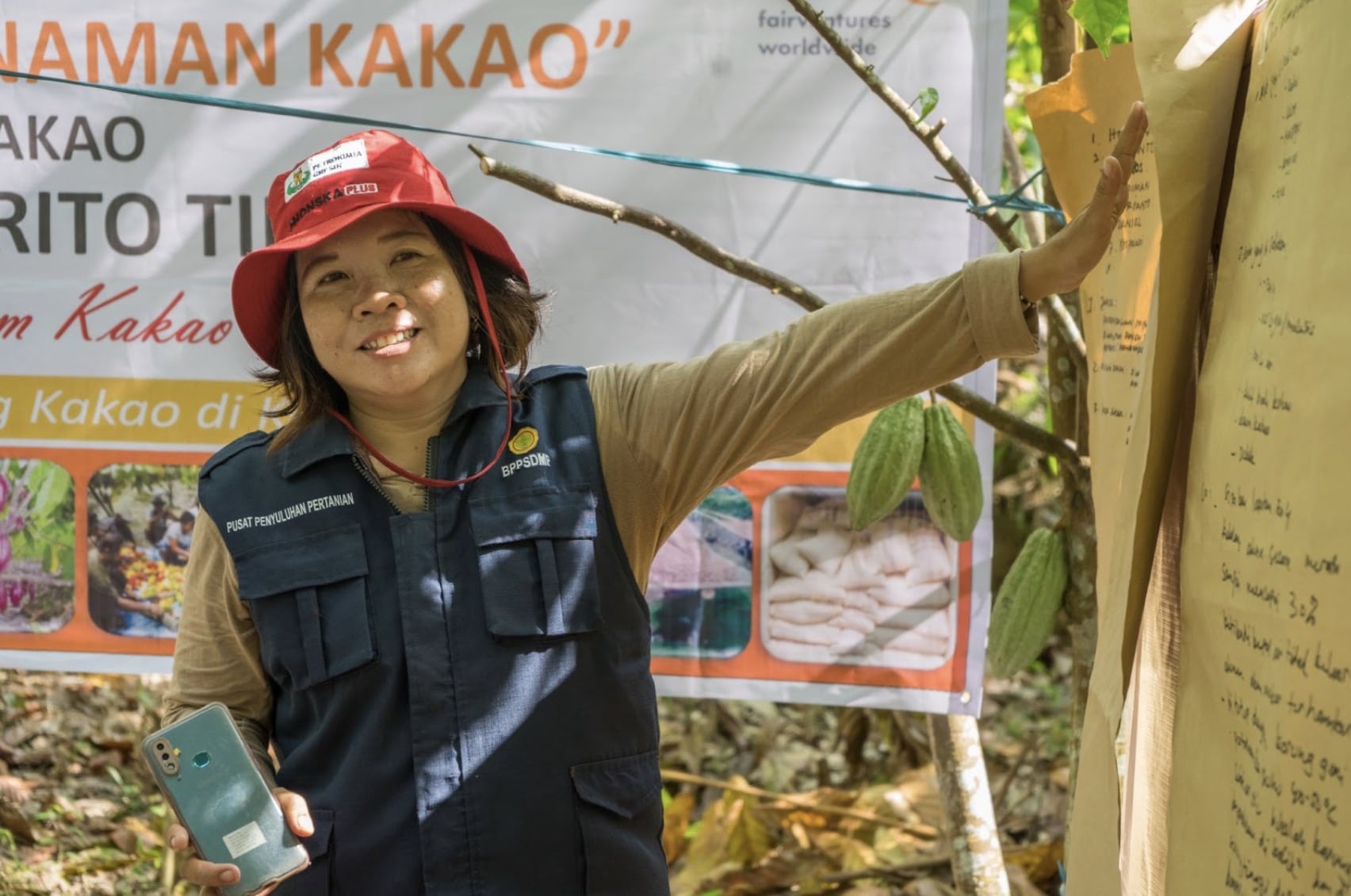
At Fairventures, we are committed to reforesting tropical forests in a way that is ecologically, socially and economically sustainable. That is why we focus on implementing a so-called agroforestry approach. Agroforestry means that smallholder farmers plant trees as well as crops, thereby adding value to the fields and gaining short- and medium-term income alternatives. One of the crops we promote is cocoa. In addition to their environmental benefits, cocoa plants grow fast, they provide a high economic value and they excel in agroforestry systems. In order to exploit the potential of cocoa in Central Kalimantan, we have started the Kalteng Cocoa Program.
Originally, the idea of strengthening farmers through cocoa came from the government of Barito Timur, which handed out seedlings to smallholders in the hopes of providing an alternative source of income. Unfortunately, the government lacked the resources to provide more assistance to the participating farmers. Here is where we come in.

First Farmer Field School for Cocoa Farmers
For more than a year, we have worked tirelessly on setting up structures, gaining knowledge, coordinating with the government and training our trainers. Finally, we launched the first cycle of Farmer Field Schools for 285 cocoa farmers in Barito Timur in April 2022. With these Farmer Field Schools, we aim to…
- … improve knowledge and technical skills regarding good cocoa cultivation and post-harvest handling in order to increase cocoa production and quality among farmers in the program area.
- … improve the ability of farmers to develop farmer groups and market access to cocoa products.
- … assist and monitor the activities of farmers / farmer groups in the application of good agricultural practices (GAP).
- … increase farmers’ knowledge and understanding of environmental issues.
- … promote and encourage environmentally friendly cocoa cultivation, post-harvest practices and nurseries.
In the Farmer Field Schools, we provide participants with a handbook and modules containing all the knowledge they need to cultivate cocoa. In addition to the theoretical input, smallholders are encouraged to practice activities like planting, tree maintenance (pruning, grafting), field sanitation, composting, and pest control on prepared demo plots. To expand their knowledge beyond the work in the field, the farmers are also educated about cocoa harvesting and production, as well as market demand for cocoa and how to achieve the desired quality. One potential sales channel for the farmers is our own rainforest chocolate.

“We are still beginners in cacao cultivation,” said Eko Basuki, a cocoa farmer from Gandrung Village who participated in our Farmer Field School. “We need guidance from experienced partners to teach us about cocoa cultivation from planting to the production stage.” He anticipates that the outcome of this action will improve his ability to compete as a cocoa farmer on a national and worldwide level. “We hope that this program will continue in the future so that we can continue to learn more,” he added. He is optimistic that cocoa will be a substantial revenue source for him and his fellow farmers in the area.
Hariyani, our Field Extension Officer, echoed a similar impression. She took on the role of facilitator for our Farmer Field School activities, representing the Barito Timur Agricultural Office. “Farmers are very enthusiastic about participating in this activity; they are so interested in learning that they want to participate in it every day,” she said.

Next Steps in the Project
As the next step, we will conduct the Advanced Farmer Field School, targeting at least 50% of those farmers who have participated in our Basic Farmer Field School. At the same time, our cocoa seedlings are undergoing intensive treatment in preparation for distribution to farmers in September. Currently, we have over 150,000 seedlings in the nursery.
Another Cocoa Farmer Field School will be held in Gunung Mas regency, and we are hopeful that it will generate greater awareness and enthusiasm among farmers about the potential of cocoa as a viable alternative source of income while retaining ecological sustainability through the agroforestry system we use.
In order to attain ecological sustainability and economic viability, agriculture around forest areas must begin to integrate forest components into production systems. Small-scale farmers in rural regions have evolved with and through the forest, and as a result, they should not be separated from it, and our Kalteng Cocoa program has progressively made this possible.